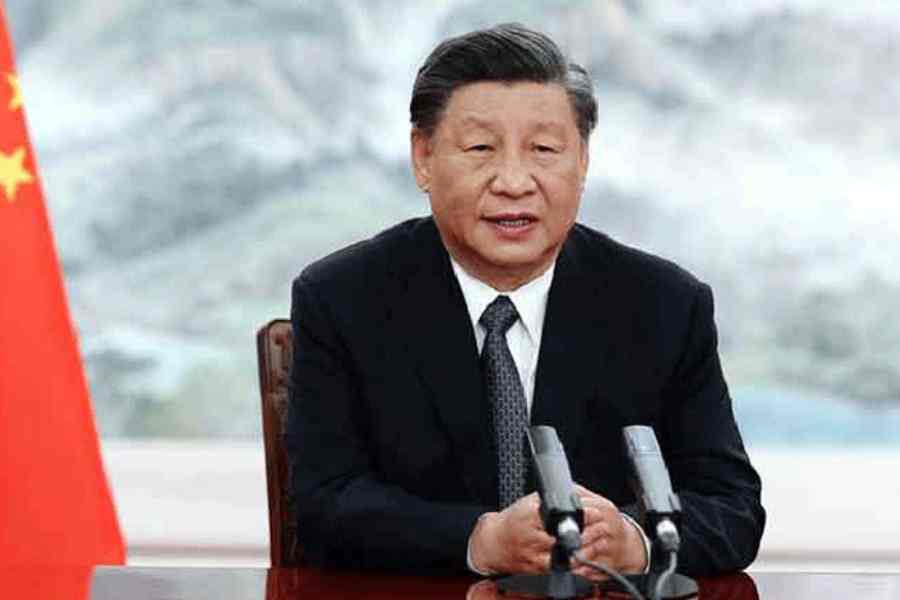China's official media Sunday accused Quad of resorting to a divide-and-rule strategy to sow discord between Beijing and its neighbours, a day after the four-member grouping's summit decided to expand its Indo-Pacific Partnership.
Hosted by President Joe Biden, the Quad Summit took place on Saturday in his hometown Wilmington, Delaware. Prime Minister Narendra Modi, Prime Minister Anthony Albanese of Australia, and Prime Minister Fumio Kishida of Japan attended the summit.
While the Chinese Foreign Ministry is yet to react to the summit which the Hong Kong-based South China Morning Post stated "By any measure, the Quad summit culminates a remarkable transformation for the framework of four nations over the course of its 17-year history", the Chinese official media said the summit focus was China-containment strategy.
"The Biden administration went to great lengths to explain how the Quad has delivered on the priorities of its "Indo-Pacific" partners — ranging from addressing pandemics and disease and investing in critical and emerging technologies to strengthening their maritime domain awareness and maritime security — and how the Quad is meant to be a "global force for good". But that failed to disguise the Quad's role as a geopolitical tool of the US,” an editorial by the state-run China Daily said.
Although neither the joint statement of the four leaders nor the fact sheet of their summit issued mentions China at all, “the country was mentioned at least 20 times in the half-hour news conference held by US National Security Advisor Jake Sullivan after the conclusion of the summit”, said the editorial released late Sunday evening here.
"Although the US blames the rising tensions in the Asia-Pacific on China, all regional countries, including the other three members of the Quad, are well aware that the main cause is the US taking the initiative to try and implement a divide-and-rule strategy in the region by taking all possible means to sow discord between China and its neighbours," it said.
In the process, Washington has realised that the Quad cannot glue the other three member countries to it nor appeal to other regional countries, as they all have close and comprehensive trade, economic and cultural connections with China, it said.
"That explains why the Biden administration has taken the latest meeting of the Quad leaders as the opportunity to transform the Quad from just a security mechanism to a comprehensive one to "ensure its endurance for the long term"," it said.
"The aim is to provide public goods and services to the Asia-Pacific to better counter China's influence. In the near future, the Quad is likely to be docked with the US' 'Indo-Pacific Economic Framework for Prosperity'," it said. "Replacing its dual security-economy model with a more integrated and comprehensive one is a significant change to the Biden administration's China-containment strategy in its last few months," it said.
"In so doing, the Biden administration is trying to replace the region's long-term game rules featuring mutual respect, non-interference, equity and win-win cooperation with its "value diplomacy", which can support its discourse of aggression on upholding the "rules-based order" and a "free and open 'Indo-Pacific'," it said.
Ahead of the summit, Li Haidong, a professor at the China Foreign Affairs University, told state-run Global Times on Saturday that for the US, the Quad is a mechanism designed around strategic competition against China by drawing a small bloc and a tool to create turmoil and division in the Asia-Pacific region and disrupt the existing close ties among regional countries, as well as a way to push Asia-Pacific countries to become more dependent on the US in terms of security.
But India, Australia and Japan have their considerations, analysts noted. "Although India, Japan and Australia have strategic integration points with the US, they also have economic integration points with China," Li noted. "Such a divisive pattern will be difficult to change for a long time, which means that the US' attempts to promote division and confrontation in the Asia-Pacific through QUAD faces a lot of uncertainties in the future," he said.
In 2007, the Quad held a single round of dialogue and joint military drills during the George W Bush administration. It drifted into a hiatus when Australia withdrew the following year to boost ties with China, the daily said.
The grouping was revived during the Donald Trump administration when it reconvened on a ministerial level.
"Biden’s push to elevate the grouping to the leaders’ level was one of very few areas of cooperation with Republicans in an otherwise deeply divided American political landscape," it said.
Except for the headline, this story has not been edited by The Telegraph Online staff and has been published from a syndicated feed.











